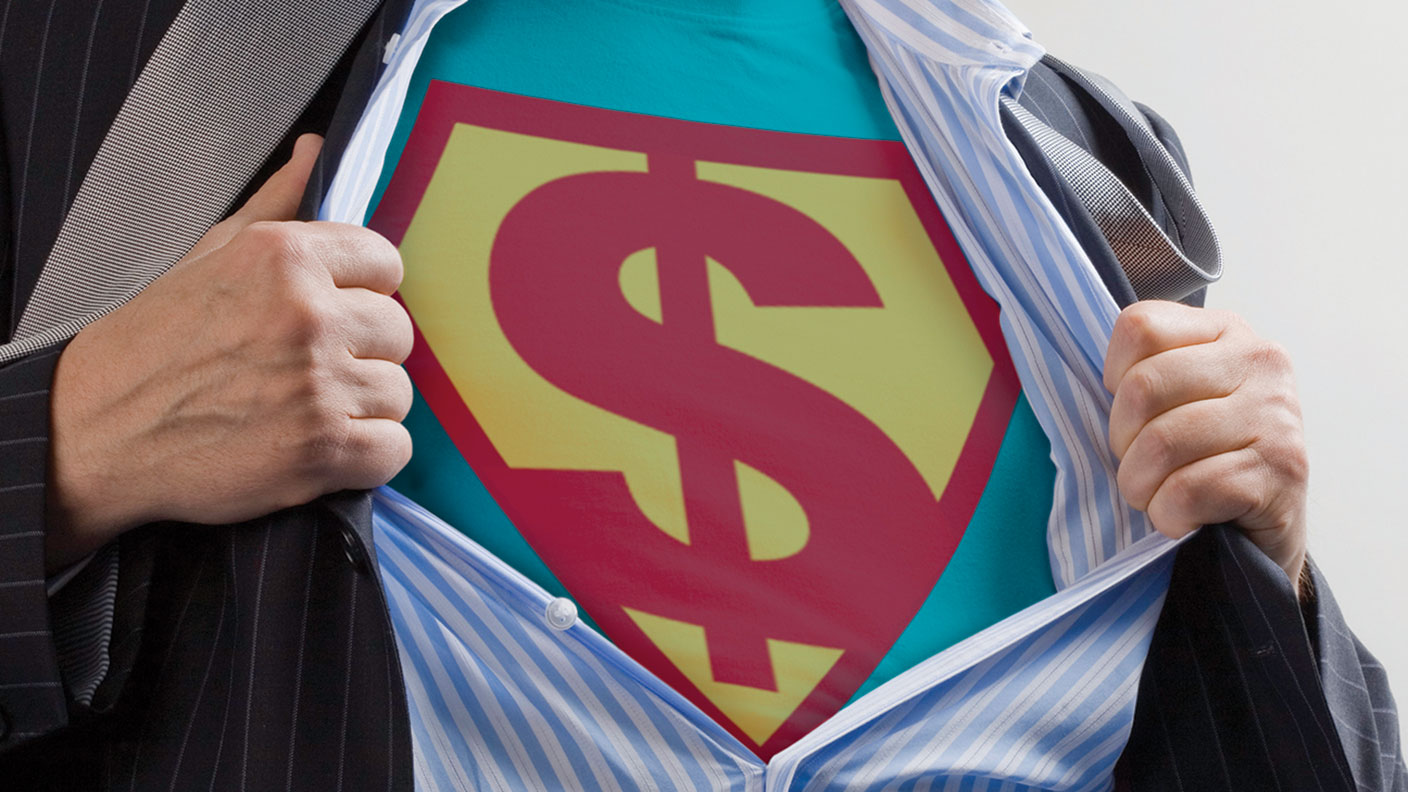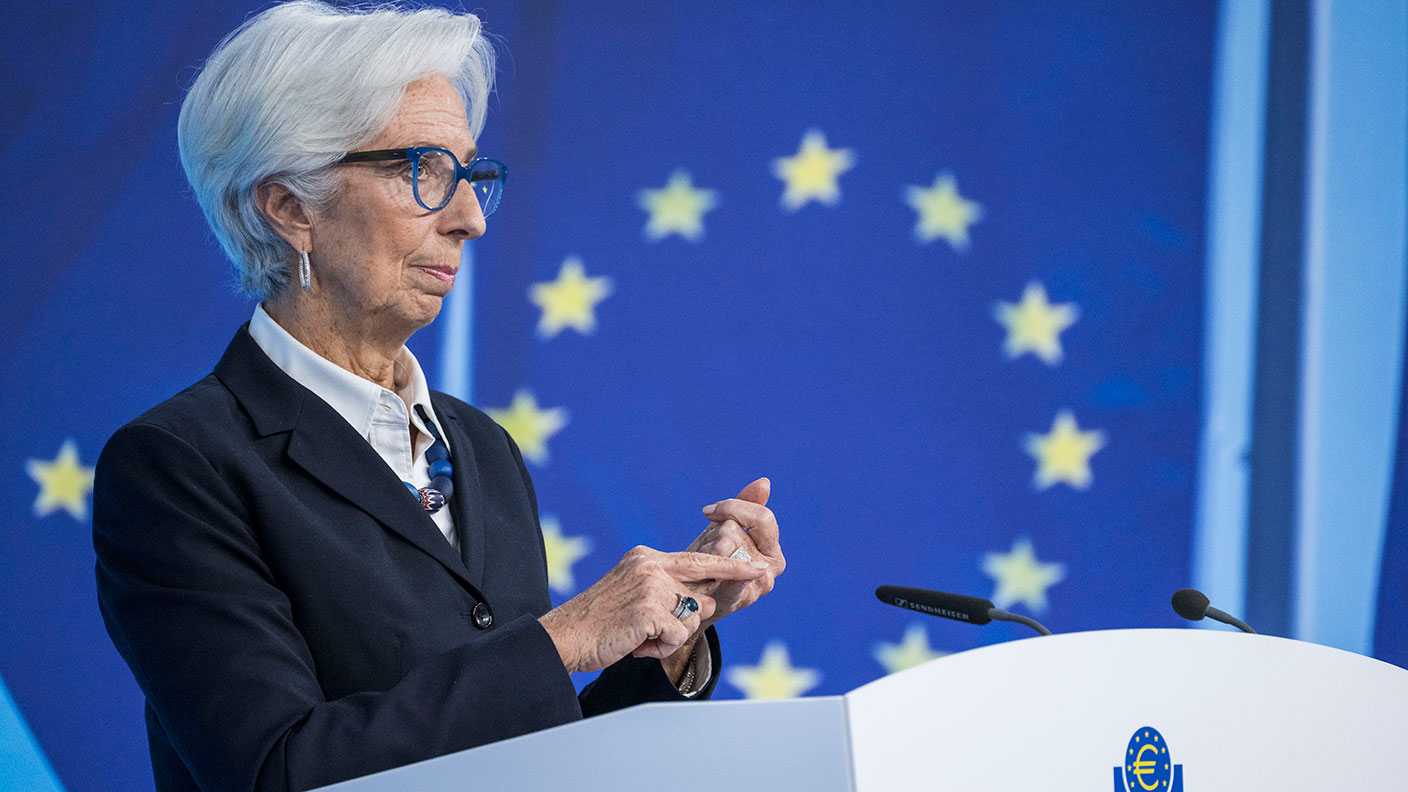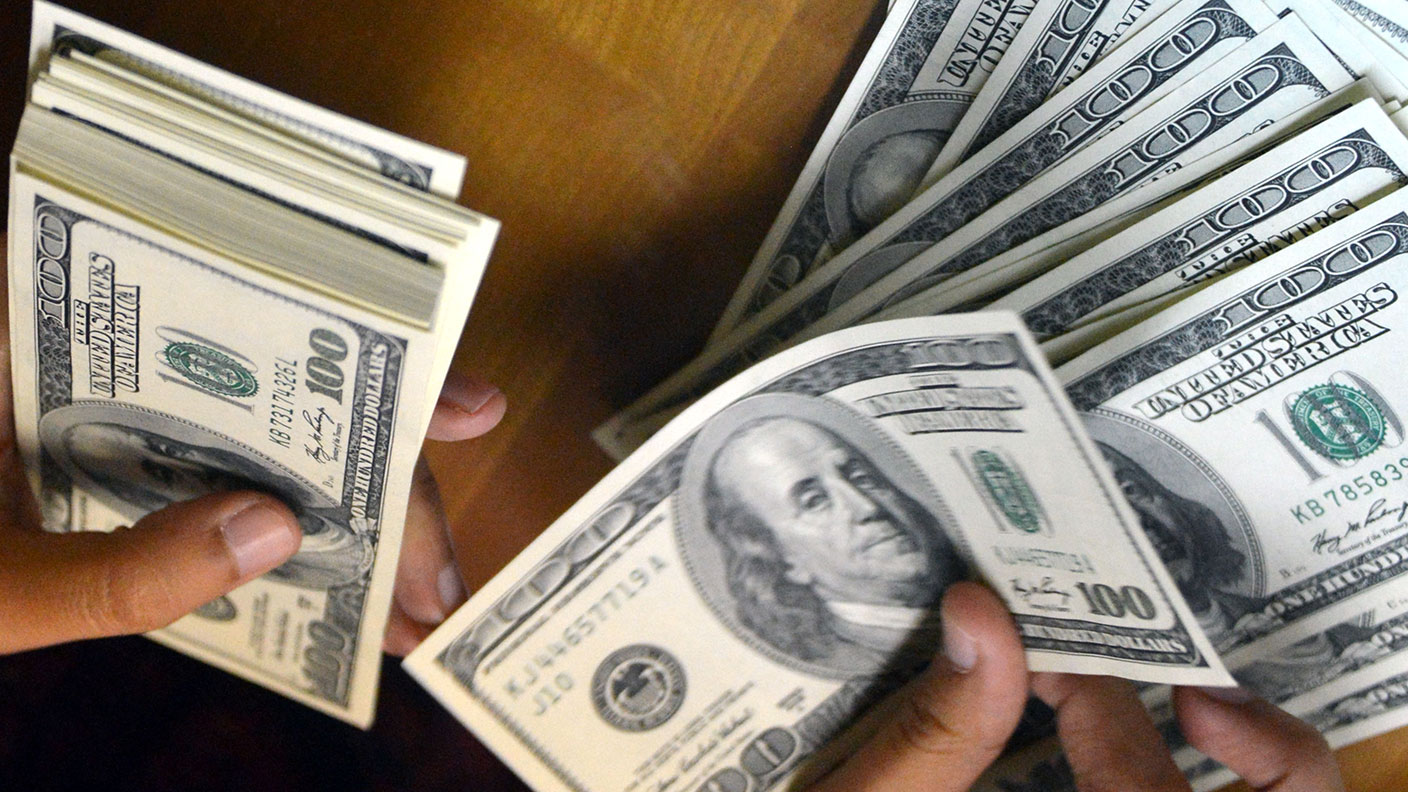What could drive the dollar higher?
Ben Bernanke is talking a strong dollar. But everything he does seems to send it lower. So if the Fed can't breathe some life back into the greenback, what can? John Stepek looks at what could push the dollar higher, and what you should be doing about it.

Get the latest financial news, insights and expert analysis from our award-winning MoneyWeek team, to help you understand what really matters when it comes to your finances.
You are now subscribed
Your newsletter sign-up was successful
Want to add more newsletters?

Twice daily
MoneyWeek
Get the latest financial news, insights and expert analysis from our award-winning MoneyWeek team, to help you understand what really matters when it comes to your finances.

Four times a week
Look After My Bills
Sign up to our free money-saving newsletter, filled with the latest news and expert advice to help you find the best tips and deals for managing your bills. Start saving today!
Ben Bernanke wants a strong dollar.
No really. He does. The chief of the Federal Reserve said so yesterday. He reckons that the central bank's commitment to "maximum employment and price stability together with the underlying strengths of the US economy, will help ensure that the dollar is strong and a source of global financial stability."
With support like that, the dollar must be rocketing even as we speak, eh?
MoneyWeek
Subscribe to MoneyWeek today and get your first six magazine issues absolutely FREE

Sign up to Money Morning
Don't miss the latest investment and personal finances news, market analysis, plus money-saving tips with our free twice-daily newsletter
Don't miss the latest investment and personal finances news, market analysis, plus money-saving tips with our free twice-daily newsletter
Of course not. Bernanke's words sent the dollar to its lowest point in the past 15 months, while gold and stocks hit fresh highs. But how much further can the US currency fall?
The markets couldn't care less about what Bernanke's saying
Ben Bernanke is hardly the first central banker or US authority to say he wants a strong dollar.
But no one ever says they want a 'weak dollar'. That's why the markets couldn't care less about what Bernanke is saying. Instead they focus on what he's doing.
And what he's doing says that he's very much in favour of a weak dollar. Because while many investors are increasingly focusing on the threat of inflation and hopes of economic growth, the Fed chairman is keen to talk down any expectations that interest rates are going to rise in the near future.
"Significant economic challenges" remain, he said. High unemployment and weak lending mean that rates will stay low for an "extended period". As Stephen Stanley at RBS Capital Markets put it to Bloomberg, Bernanke wants to "keep the liquidity spigot wide open for some time to come." In other words, monetary policy will remain free and easy, so there's no support for the dollar from Bernanke's direction.
Bernanke also said that he sees no problem with asset prices rising. "It is inherently extraordinarily difficult to know whether an asset's price is in line with its fundamental value. It's not obvious to me in any case that there are any large misalignments currently in the US financial system."
That would be very reassuring, except that Bernanke also didn't see any housing bubble in the US before it exploded and triggered the global financial crisis. So we'd be taking his views on asset prices with a big pinch of salt.
But in any case, as my colleague Dominic Frisby pointed out yesterday, for now, for as long as the dollar is falling, just about everything else will keep rising, from stocks to gold (which hit yet another all-time dollar high yesterday).
What could drive the dollar higher?
So what could stop the dollar's apparent free fall, and with it, the surge in other assets?
Hugh Hendry at Eclectica reckons he has the answer. Bernanke and the US authorities are hoping to trigger a recovery in the US economy with all their government 'stimulus'. But, says Hendry, the more indebted your economy is, the lower the impact of new debt on growth. Look at Japan, he says. "They have built bridges to nowhere and dropped Yen notes from helicopters for 20 years and still they have nothing to show for it."

- Why UK property prices are going to fall 50%
- When it will be time to get back in and buy up half price property
In the US, he says: "over the last decade, each marginal dollar of debt has generated less and less marginal income. We knew that there would be a 'zero hour' for the economy when the creation of new debt would not contribute to GDP growth."
In other words, all the government's efforts to boost GDP using public debt will fail. And investors and markets, who are expecting a nice solid V-shaped recovery, will end up being disappointed. And what happens when investors get disappointed? They become risk averse. And that leads them to pile into what they perceive as less risky assets, well suited to deflation rather than inflation such as dollar-denominated US Treasuries.
In a way, Bernanke is right with his strong dollar rhetoric. The weaker the US economy looks, the more likely it is that investors will be disappointed as attempts to spark inflation fail, and the more likely a stronger dollar becomes.
The dollar - an attractive contrarian bet
Sentiment points to a dollar rebound too. As Hendry puts it, "America has fallen out of love with its own currency and bond market." And everyone else is betting against it too, which makes it all the more attractive as a contrarian bet. "Dollar short positions are very pronounced" among speculators, Ulrich Leucthmann of Commerzbank tells Bloomberg. "When everyone's already short dollars, then there's no one to sell them."
In the long run, we suspect that the dollar will one day no longer be the world's reserve currency. But it takes a long time for these big transitions to happen, and there are plenty of ups and downs along the way. Right now, the danger of betting with the crowd against the dollar seems to outweigh the potential gains to be had from backing a bounce.
Perhaps more to the point, the further the dollar falls, the twitchier other countries become. The eurozone in particular is very sensitive to the impact of the strong euro on its exports. If other central bankers start to demand a stronger dollar, then unlike Bernanke's hollow words, that might have a genuine impact.
But how do you play it? Well, we wouldn't be keen to pile into US government debt as a way to play any rebound, as it's not an asset class we're keen to hold for the long term. And while bold investors might want to try spreadbetting, remember to set stop losses as timing shifts in the currency markets is a risky business.
In short, the weak dollar simply reflects the increasingly over-optimistic view of the majority of investors. So rather than betting specifically on a bounce in the dollar, we'd be making sure that your portfolio is positioned defensively for further economic disappointment. That means taking profits in any risky 'dash for trash' assets, sticking with defensive plays and cash, and avoiding adding new money to assets that you're not planning to hold for the longer term.
Our recommended article for today
Ignore the theories and buy bargains
The 'efficient market' theory is at the root of most fund managers' poor performance, says Merryn Somerset Webb. If you want to make any money, here's what you should be focusing on instead.
Get the latest financial news, insights and expert analysis from our award-winning MoneyWeek team, to help you understand what really matters when it comes to your finances.

-
 ISA fund and trust picks for every type of investor – which could work for you?
ISA fund and trust picks for every type of investor – which could work for you?Whether you’re an ISA investor seeking reliable returns, looking to add a bit more risk to your portfolio or are new to investing, MoneyWeek asked the experts for funds and investment trusts you could consider in 2026
-
 The most popular fund sectors of 2025 as investor outflows continue
The most popular fund sectors of 2025 as investor outflows continueIt was another difficult year for fund inflows but there are signs that investors are returning to the financial markets
-
 The challenge with currency hedging
The challenge with currency hedgingA weaker dollar will make currency hedges more appealing, but volatile rates may complicate the results
-
 It's time to back the yen, says Dominic Frisby
It's time to back the yen, says Dominic FrisbyThe Japanese yen has been weak for a long time, says Dominic Frisby. That may soon change.
-
 Why a strong dollar hurts – and what you can do about it
Why a strong dollar hurts – and what you can do about itAnalysis The US dollar is at its strongest level in 20 years. That’s bad news for most investment assets, says John Stepek – here’s why
-
 Could a stronger euro bring relief to global markets?
Could a stronger euro bring relief to global markets?Analysis The European Central Bank is set to end its negative interest rate policy. That should bring some relief to markets, says John Stepek. Here’s why.
-
 HubSpot: a tech stock set to tumble
HubSpot: a tech stock set to tumbleTips US tech stocks have had a fantastic couple of years. But this year is unlikely to be so bullish for high-fliers that can’t turn big profits.
-
 What does the future hold for central bank digital currencies?
What does the future hold for central bank digital currencies?Briefings Many of the world's central banks – including the Bank of England – have expressed an interest in creating their own digital currencies. Shivani Khandekar looks at the state of play in central bank digital currencies.
-
 Will the market crash again? Watch the US dollar for clues
Will the market crash again? Watch the US dollar for cluesOpinion One of the biggest driving factors behind the market’s recent big sell-off was the bounce in the US dollar. John Stepek explains why the price of the dollar matters so much, and why investors should keep a keen eye on it.
-
 The US dollar’s days as the world's most important currency are numbered – it’s official
The US dollar’s days as the world's most important currency are numbered – it’s officialFeatures Central bankers reckon the dollar's days as the world’s reserve currency are numbered. But what could replace it? John Stepek takes a look at Bank of England governor Mark Carney's cunning plan.